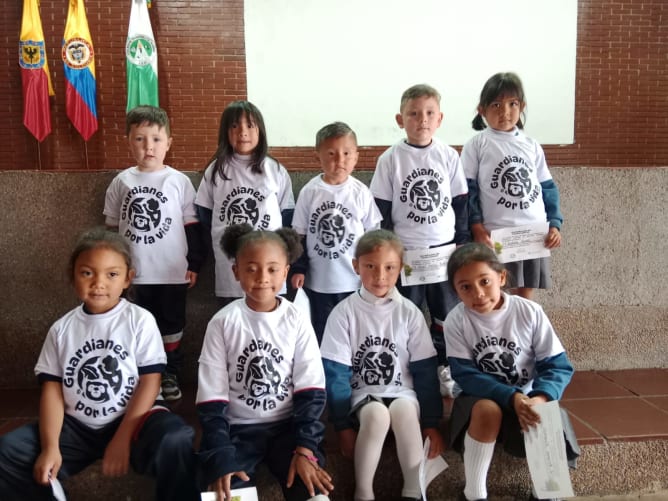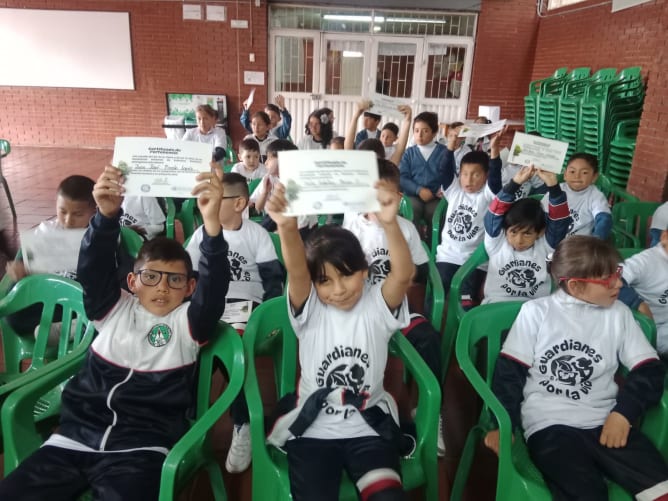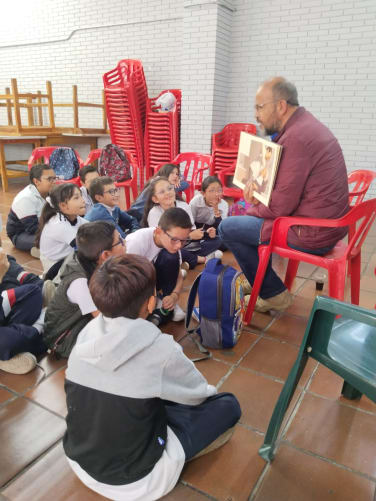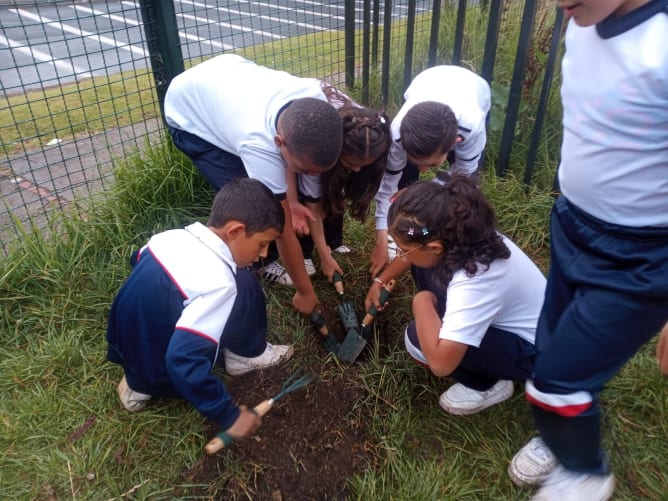First things first...
Why launch this crowdfunding project?
I met Francisco Vera, a 13-year-old Colombian activist, last year and was immediately amazed by his experience, his passion, and his cause. I didn’t want our meeting to be just one more in my life, so I decided to create an initiative within my company to be able to help him more concretely.
Bright Wave’s (the new initiative) mission is to highlight and support a non-profit organization by meeting its immediate needs, such as recruiting volunteers, acquiring equipment, improving visibility, providing financial support and so on. So, in 2024, the Brightside team joined forces with me to collaborate with Francisco and its network of schools: Guardianes por la Vida.
A little background
Colombia is considered a megadiverse country due to its geographical location. It is home to large nature reserves, endemic species and multiple climates, making it one of the 12 richest countries in terms of flora and fauna. It is a country that is highly vulnerable to climate change, not only because of the aspects mentioned above, but also because of its physical, economic, social and environmental characteristics.
Against this backdrop, in March 2019 in the municipality of Villeta - Cundinamarca, Guardianes por la Vida is being built, an initiative started by Francisco. The initiative is a bet and a commitment to put the issue of climate change at the heart of the population’s concerns, particularly among Colombian children and young people.
Although it began in a semi-rural area and with a group of six 10-year-olds, it is now one of the most important environmental and climate platforms made up of children and young people in the country. In particular, it makes visible the issues linked to the protection of all forms of life and climate change, and positions the protection of the planet as a means of exercising citizenship.
The development of the Guardianes por la Vida process is an opportunity to highlight the need to take measures to adapt to and mitigate climate change. In this way, it generates action and involvement on the part of the children who are part of this project in the territories where it will be implemented. It’s important to stress that this project won’t be starting from scratch, but is a continuation of the climate and environmental education process that Francisco Javier began three years ago. This has had a major impact, influencing children and young people in Colombia and parts of Latin America. So awakening the interest of a sector of the population is a major challenge, so that people can prepare to adapt to the climate crisis we are experiencing.
The vegetable gardens of eco-hope
What is eco-hope? (Eco-Esperanza)
It’s the feeling of optimism and confidence in the future linked to environmental actions.
Now, the vegetable gardens!
Since 2022, Francisco has been consolidating the network of Eco-esperanza schools through the Guardianes por la Vida initiative. Indeed, the year 2023 was a resounding success, with 16 schools joining the network and setting up vegetable gardens in rural and urban areas of Colombia. Thanks to this project, they are able to provide training to citizens on the environment and climate in alliance with teachers, reaching over 600 children in Colombia.
In 2023, Francisco worked jointly with the Office of the United Nations High Commissioner for Human Rights in Colombia to promote the Universal Declaration of Human Rights. In particular the right to a healthy, clean and dignified environment, also planting over 1,200 trees throughout the country. In other words, the initiative has enabled the implementation of 5 «ecoesperanza» schools where vegetable gardens have been created and are being maintained today. In 2023, 16 schools joined the project, enabling it to mature into the 2024 project described below.
Given the country’s high levels of economic vulnerability, particularly among children, where 54.2% of the Colombian population suffers from food insecurity, Guardianes por la Vida has proposed the «Huertas de la Ecoesperanza» project, which seeks to have a positive impact on five schools in our network, teaching children to produce food in their schools with the possibility of generating food exchange networks.
This project aims to continue the process of working with five educational institutions or one hundred (100) children to promote Sustainable Development Goal 2 «Zero Hunger», while promoting food and nutritional security.
Your contribution: what's it all for?
The implementation of this project will provide useful and effective tools to produce food on a small scale but also to promote food and nutritional sovereignty as well as to bring children closer to some of the major issues of climate change: production, distribution and waste of food. We envision that the project will allow them to establish a relationship with the land and with the sacred act of feeding.
Under the «Huertas de la Ecoesperanza» project, we seek to generate a positive learning journey for children to apply conceptual and practical tools from their context to generate a culture of care for life and the planet while working on food sovereignty and security and generating greater access to healthy food.
EXPECTED RESULTS: It is expected to link one hundred (100) children from school institutions to this process and strengthen the capacity of five (5) schools during the year 2024.





